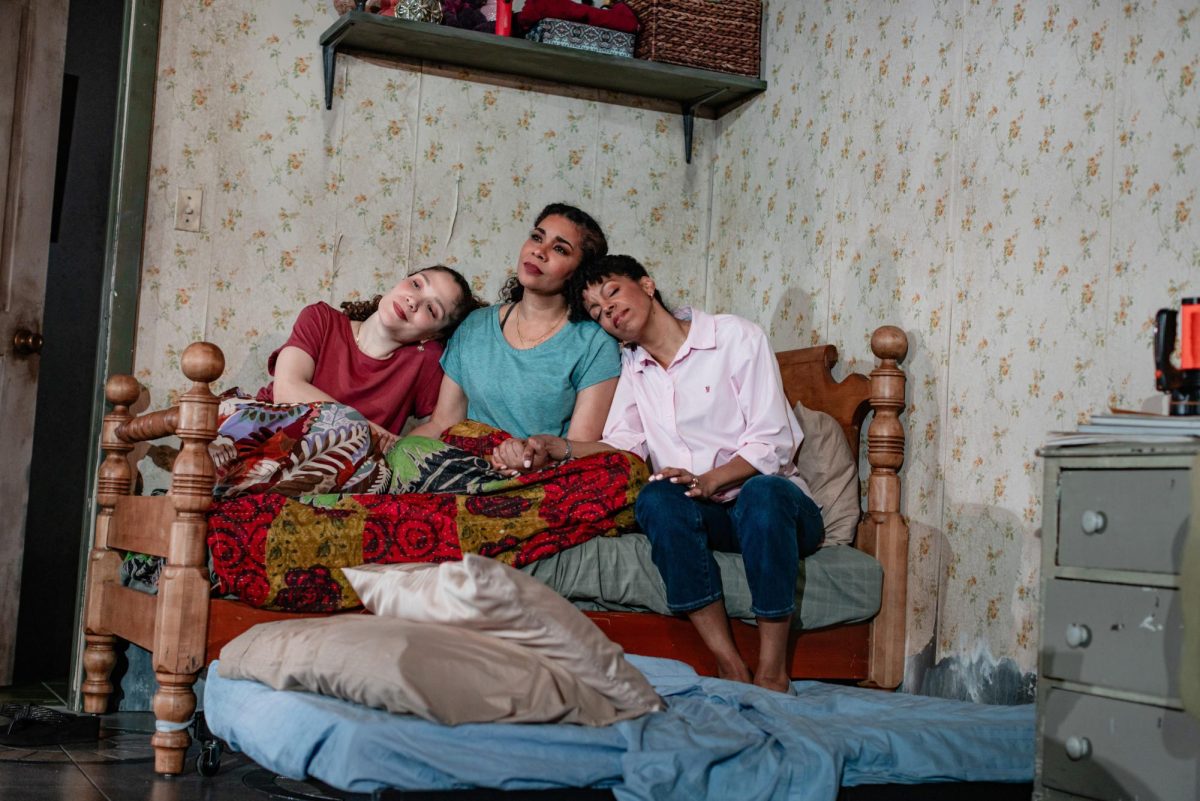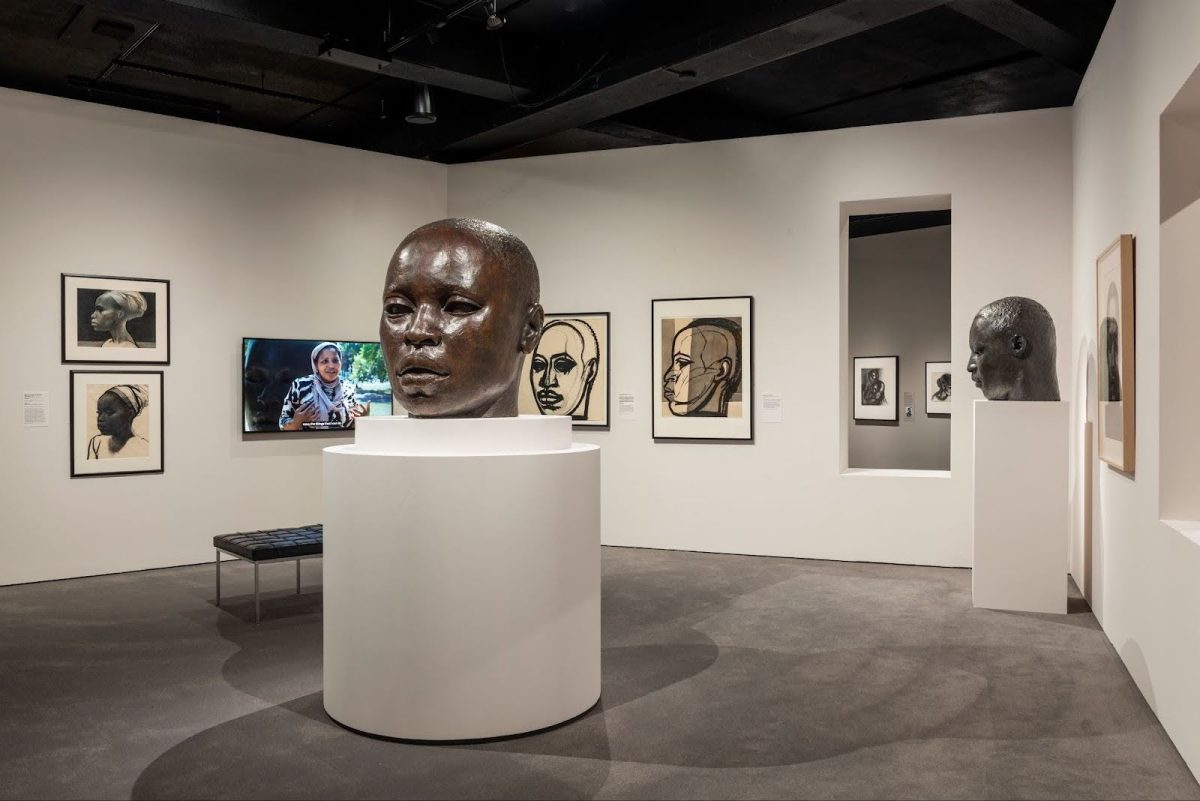The Huntington Theatre Company opened “Sojourners,” the first play of Mfoniso Udofia’s ambitious nine-part Ufot Family Cycle series, Oct. 31. By definition, a sojourner is a person who stays in a place temporarily. In “Sojourners,” audiences follow four characters, two of whom are married and have just arrived in Houston, Texas for school from their home country of Nigeria. Dubbed the origin story of the nine plays, “Sojourners” is a two-and-a-half hour experience transcending the typical immigrant story to reach a nuanced plot and performance that leaves the audience wanting more.
When Ukpong (Nomè SiDone) and Abasiama (Abigail C. Onwunali) initially arrive as husband and wife in Houston, they plan to go back home to Nigeria after graduating from school. Their plans are disrupted when Ukpong realizes he has fallen in love with pursuing the American Dream. Abasiama and Ukpong’s relationship ebbs and flows as their future goals misalign. He is frequently absent, leaving a pregnant Abasiama to care for herself.
The actresses in “Sojourners” are exceptional: Onwunali portrays Abasiama’s experience as a woman wholly. While Abasiama is fairly reserved in personality, she eventually opens up and becomes more vulnerable. Onwunali deftly portrays the evolution of Abasiama from a submissive and tolerant wife to a woman who knows exactly what she wants and knows how to get it.
On top of attending classes, Abasiama works at a Fiesta gas station. She meets Moxie (Asha Basha Duniani) when she tries to apply for a job, and the working relationship between the two leads to a firm friendship. Moxie ends up being the one to care for Abasiama when she faces pregnancy pains, as well as another student, Disciple (Joshua Olumide), when he runs into the two women while out of gas. Disciple is a serious man who is very spiritual and constantly prays for the best for the two girls.
Moxie could not have been cast more perfectly. Duniani adds a layer of irresistible charm to Moxie while not undermining the troubles and assault from men that Moxie repeatedly faces. Although Moxie and Abasiama are very different, the actors complement and elevate each other’s roles in their shared scenes.

The gas station where the two first met was brought to life by a set decorated with much attention to detail. . The audience was transported from the theatre to a Texas corner store — through the slightly cloudy glass panes the audience could peer into the store and point out different snacks and drinks, from potato chips to bottles of Gatorade. The cherry on top? The set’s lighting, which was a crucial element of stagecraft in the play. Once the white fluorescent lights dropped down on stage, the audience was in the streets of Houston. It was a stark contrast to Abasiama and Ukpong’s residence, which felt very homey. Their apartment felt very lived-in — with a worn-in couch and warm lighting.
The play’s weakness, however, lies in the link between Disciple and the rest of the characters’ storylines. Disciple is a Nigerian student who is writing his thesis on African migration patterns, and he is overjoyed to meet Abasiama, a woman from the same village as him. He eventually develops feelings for her and wants to replace Ukpong as her husband, but Abasiama declines. Although he provides Abasiama comfort during her pregnancy and the birth of her daughter, it is unclear what his overarching purpose in the plot was.
“Sojourners,” overall, is a deeply touching play, showcasing a refreshing counter to the old trope of “man saves woman.” Each character was distinct and there was a character for everybody in the diverse audience. The play runs at The Huntington until Dec. 1, and the rest of the nine-part Ufot Family Cycle series will run in venues throughout Boston until 2026.























